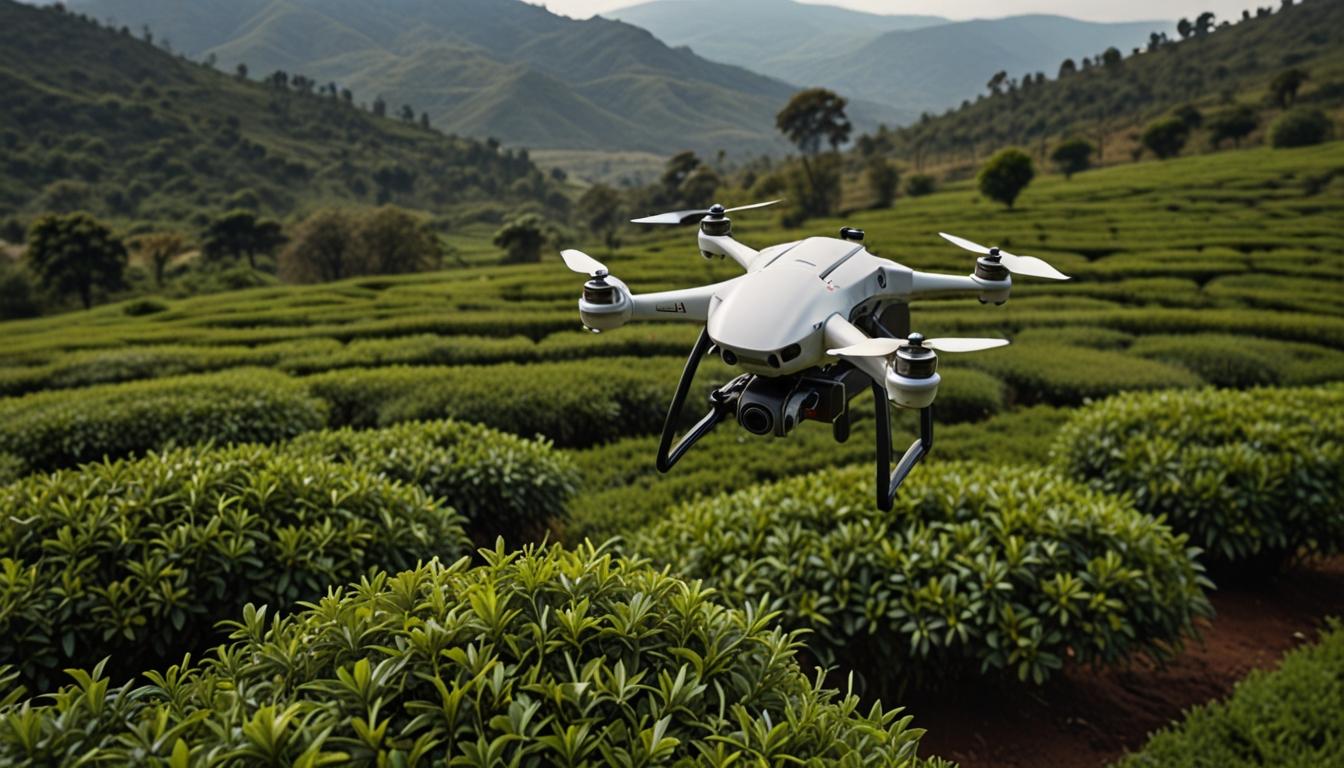Researchers have initiated trials to implement climate mitigation and resilience measures aimed at enhancing tea farming in Kenya.
Lipton Teas and Infusions partnered with Cranfield University for these trials in the Kericho region, focusing on improving tea production standards and sustainability. This project, backed by the UK’s Biotechnology and Biological Sciences Research Council (BBSRC) and the UK Tea and Infusions Association (UKTIA), seeks to reduce nitrogen fertilizer-related emissions.
Tea has the second lowest carbon footprint after tap water but about a quarter of its total greenhouse gas emissions are attributed to fertiliser use. In addition, climate change is threatening tea-growing regions of East Africa with deeper and longer dry seasons. The trial will aim to develop solutions to reduce nitrogen fertilizer-related emissions, and to accelerate the breeding of drought resistant varieties of tea using advanced technologies for selection.
The trials involve the use of drone imagery and analysis for better crop management, precision farming, and examination of various physical features of the crops, aiming to develop climate-resilient tea plant varieties. The project will also gather emissions data to inform a new tea categorization system, helping tea producers accurately calculate their carbon footprints with industry-wide comparable results.
This initiative is expected to enhance scientific understanding of tea production, improve tea quality, reduce wastage, and lower environmental impacts.
Taisa Hansen, Chief Research and Innovation Officer at Lipton Teas and Infusions, highlighted the importance of this collaboration amidst the advancing climate change and commented: “Combining our experience of tea growing with Cranfield University’s specialist research capabilities will enable us to identify the key innovations that this industry requires. We are moving fast because climate change will not wait.”
Professor Leon Terry of Cranfield University emphasized the value of the BBSRC grant and collective expertise as crucial for driving sustainable tea farming. He commented: “The BBSRC grant, the deep technical expertise of our leading scientists, and the support of a tea company with the scale and experience of LIPTON Teas and Infusions, will ensure well-informed first-class research supports a sustainable future for tea.”




